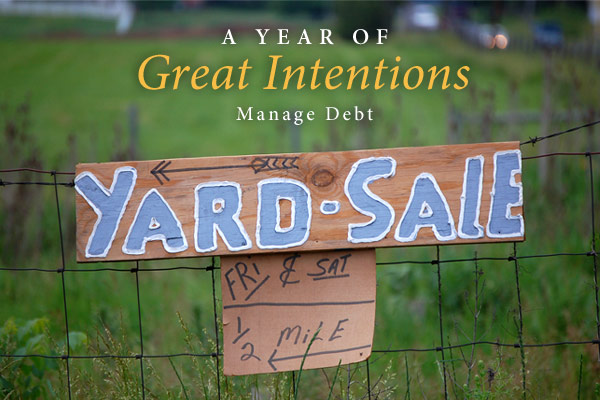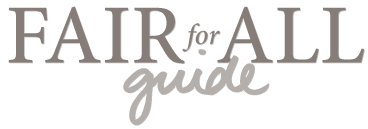
When I walk past a yard sale on a Saturday, I am astonished at how much stuff people accumulate and cannot sell. Sure, perhaps in ’95 you loved that porcelain statue and it stood proudly on your shelf for years, but you found it dusty in a box in your closet a month ago, stuffed beneath ratty t-shirts and your old tape collection. There is an excess of consuming, evident all summer long in lawns and garages across America.
There is a way to manage this better, with a few steps for us as individuals to take so we can head in that direction, and shut down the extreme consumerism that is hurting poor people around the world. This second topic of the blog series A Year of Great Intentions, Manage Debt, is meant to encourage you to be mindful of your money as we continue into this year and beyond, with the inclusion of ethical shopping choices in your financial plan.
It is important to keep in mind some financial basics, like setting aside savings regularly, checking your credit report at least once per year, cutting unnecessary spending, and paying off debts before adding new ones. Since I am not a financial expert, you may want to schedule an appointment with a financial advisor to learn more and make a personalized plan; or, consider taking a personal finance course or checking out books from your library.
Before exclaiming, “I’m going to buy everything Fair Trade!” please read the following tips that might rescue you from over-shopping (and even over-spending!):
- Set up a budget for shopping and stick to it.
- Invest in items that will last long, be useful for decades, and be used often.
- Go thrifting for things you need that don’t have to be brand-new. Recycle and reuse!
- Be cautious about spending on credit and how or when you are paying off your debt.
- Ask, “Do I need this?” every time.
- Assure that what you’re buying follows ethical social and environmental standards. (See our Principles page for our set of standards as an example.)
Choosing to have great intentions regarding your assets is, truthfully, subjective. What sets you apart, though, is that your intention is to positively affect the lives of other people. This “manage debt” thing is not about you alone. Halting the purchase of questionably-derived products is one way to take a stand against slave labor. Beginning to purchase more ethically-made products will support the efforts of those companies giving marginalized adults and children an auspicious life. Find out where your heart should be, and let everything in your life, including your finances, follow suit.
